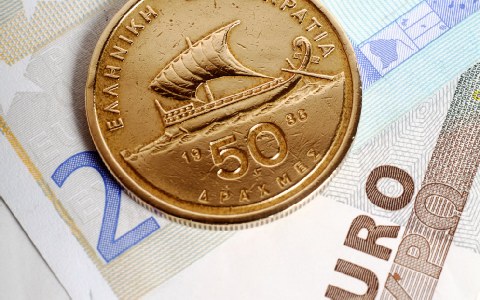photos www.ethnos.gr
In its publication, Reuters argues that Greece's exit from the euro – whether by design or because of a an ‘accident’ – is highly unlikely. But Athens might be no less compelled to introduce an alternative payment method, alongside the euro, unless an agreement with creditors is reached in the near future, says the publication, based on European high-ranking officials.
Along with this, the agency reiterates the warning a senior EU official made this week that Athens could remain without the euro by April 20.
"At some point, when the government hasn't got a single euro in its coffers to pay salaries and pensions, it may resort to the issuance of IOUs (I Owe You) bills, which will guarantee the payment of a specific amount to their owner," said the official.
"This type of bond will be traded on the secondary market, much depreciated against the euro, and will become a currency with the euro," he added.
The publication also says that IOUs would not be taken just anywhere and for any type of transaction, e.g. by retail outlets who are unlikely to accept them. They can be used to pay bills to the state, at least in the onset.
Thereafter, if the government runs out of money, it will be forced to impose restrictions on capital movement to prevent a run on deposits of the kind that took place in Cyprus, says the publication.
This way the government might stand a better chance of staving off the suspension of its debt payments.

"This measure would be temporarily designed to keep the government in power, with the hope that it might be able to renegotiate an agreement with the partners and have more cash unfrozen," said another EU official before Reuters.
The agency points out that Athens has ruled out this kind of development, although it has hinted in the past that it might delay some domestic payments amid its attempts to service its debt.
"There is no way to force a country out of the euro or the EU, and Greece is in no hurry to do it on its own accord."
"If they choose to go bankrupt, it would be better for them to do it inside the Eurozone than outside it," said another high-ranking European official.
But the most important issue in the event of default is what the ECB will do with Greek banks. Will it let them collapse, and then force them to recapitalize with the new currency? Or if a collapse is feared to entail catastrophic consequences, will it choose to recapitalize them through the European Stability Mechanism?
Reuters summarises its analysis by saying these options are only theoretical and have never been discussed officially, as the sources claimed.